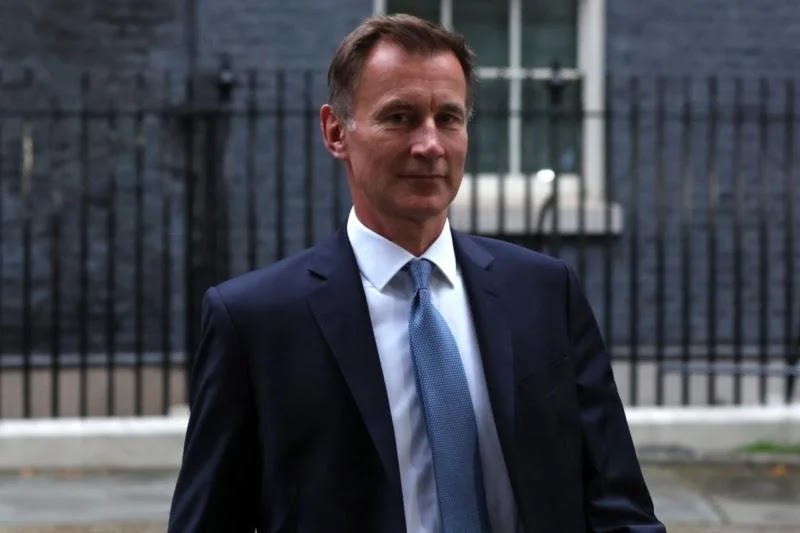The majority of an economic package recently unveiled by the British government has been overturned by Chancellor of the Exchequer Jeremy Hunt, who claimed that the nation needed to regain investor trust.
Hunt indicated on Monday that "virtually all" of the tax cuts promised last month would be scrapped and hinted to upcoming cuts to government spending.
According to Hunt, there won't be a 1 percentage point reduction in the basic rate of income tax that was slated to go into force the following year.
He also reduced the energy price cap that was put in place to aid consumers in paying their bills. Instead of being evaluated every two years, it will now be in April.
“I remain extremely confident about the UK’s long-term economic prospects as we deliver our mission to go for growth,” Hunt said in a televised clip. “But growth requires confidence and stability, and the United Kingdom will always pay its way.”
Hunt was appointed on Friday after Prime Minister Liz Truss fired Kwasi Kwarteng, who spent less than six weeks in the Treasury job.
Truss and Kwarteng jointly came up with a September 23 announcement of 45 billion pounds ($50bn) in unfunded tax cuts that spooked financial markets, sent the pound to record lows and forced the Bank of England to take emergency action.
Monday’s hastily scheduled announcement came two weeks before Hunt is due to set out a medium-term fiscal plan on October 31.
Sterling extended its gains against the US dollar, to be up 1.2 per cent at 11:20am (10:20 GMT), and government bond prices edged higher.
The near-total reversal of the economic plan leaves Truss, Britain’s fourth prime minister in six years, battling to survive in Downing Street less than six weeks after she came to power promising bold tax cuts and deregulation to reignite economic growth.
She has been forced to reverse course after markets reacted violently to her plan, hammering the value of the pound and government bond prices and forcing the Bank of England to intervene to protect pension funds.
The central bank stuck to its schedule of ending the support on Friday, adding to the pressure on Hunt over the weekend to find ways to reduce spending before the bond markets reopened.
While he had been expected to reverse some of the tax cuts, the change to the energy support scheme had been unexpected.



